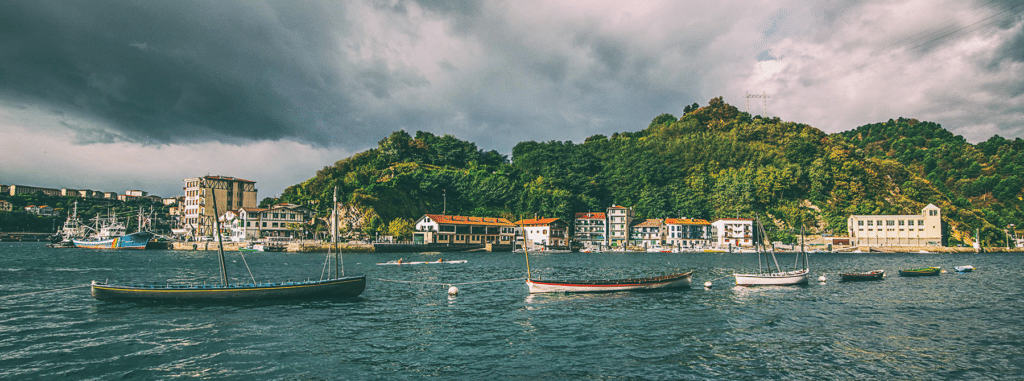Coastal City Living Lab (CCLL) is a central concept SCORE utilises to address climate change adaptation and resilience issues. Our network of CCLLs spans 10 coastal cities actively involving citizens, scientists, policy makers and other stakeholders to co-create, implement, test, and evaluate innovations in real-life situations. These CCLLs learn from each other through a mutual exchange of knowledge during the process. Our team sat down with four of our CCLLs to understand how the living labs are being established and their progress to date!
Oarsoaldea, Basque Country, Spain

Current situation: The CCLL core team is composed of members from the Oarsoaldea Development Agency, who represents the four city councils of the region. They have developed a work plan to help execute the different phases of the project and allow them to work more efficiently. Through this work, they have successfully gathered information about the Ecosystem-based Approaches (EbA) and built relationships with key stakeholders – external academics have reached out to the Oarsoaldea CCLL requesting to engage in the project.
Main challenges: The challenges faced by the Oarsoaldea CCLL include difficulties synchronising the needs of the different technical work packages of the project with the needs and availability of the CCLLs, particularly when working with four city councils. The establishment of the work plan has been essential to know what tasks to work on and when. Another challenge has been to increase the general public’s knowledge about climate change and the CCLL.
A new vision: Their vision for the CCLL has changed quite considerably as the conversations around EBAs are becoming more strategic and the relationships with stakeholders have become much more meaningful than anticipated.
Their advice to other CCLLs:
“Showcase and tailor the traits you are highlighting to the relevant stakeholder and adapt the messaging to their needs.”
More information about Oarsoaldea’s CCLL.
Sligo, Ireland

Current situation: Sligo’s CCLL brings together two focused groups: Atlantic Technological University covering the technical elements and Sligo County Council bringing policy and local knowledge. The efforts have been focused on sensors, citizen science, and keeping stakeholders motivated across the CCLL’s three site locations. Activities with schools and families have been a priority and will continue to be so. Notably, the project is on the County Council’s Strategic Policy Committee agenda. The team is optimistic that when the sensors are ready and deployed, there will be a community and policymakers interested in their deployment/results.
Main challenges: The main challenges for Sligo are identifying and engaging a consistent pool of diverse stakeholders and finding those individuals interested in doing the groundwork and monitoring the sensors.
Their vision: The CCLL team feels much more established and is eager for the vision to continue solidifying and building sustainability, allowing SCORE to live beyond 2025.
More information about Sligo’s CCLL.
Piran, Slovenia

Current situation: Piran’s CCLL is extremely active in stakeholder engagement and dissemination. The main course of action has been to establish baselines for the region as this has not been previously done. The work with stakeholders has been very productive, covering much of the quadruple helix (science, policy, industry, society, from volunteers to firefighters, to action groups and waste management teams. The contact with the stakeholders has been very positive and they have valued the face-to-face work.
Main challenges: A main challenge for Piran has been to build strong relationship with individuals within the stakeholders’ organisations. These relationships have proven to be very fruitful.
What is their advice to other CCLL?:
Be aware of how much time is needed to focus on personal communication and be mindful of establishing the CCLL during election periods.
More information about Piran’s CCLL.
Vilanova, Catalonia, Spain

Current situation: Vilanova’s CCLL is unique in that its core team consists of ENT (a consulting firm), the Barcelona Provincial Council, and the Vilanova City Council. This diversity brings many opportunities and access to a wider variety of stakeholders. The team has been focused on raising awareness of the project at regional and national levels, including various publications and a radio interview.
Main challenge: Vilanova’s CCLL is aware of the importance of adapting the language of the project to stakeholders. The team feels that because Vilanova is a medium-sized town, they can more easily garner meaningful interest in the project. There is high interest from the stakeholders in participating, including interest from neighbouring cities along the coastline. One of their priorities is to establishing connections with other activities within the province.
Next steps: In the following months, Vilanova’s CCLL will work to increase the knowledge and social acceptance of Ecosystem-based adaptation measures, as well as disseminating SCORE project results, organising a Workshop in Vilanova and participating in outreach and dissemination activities across the Province of Barcelona.
